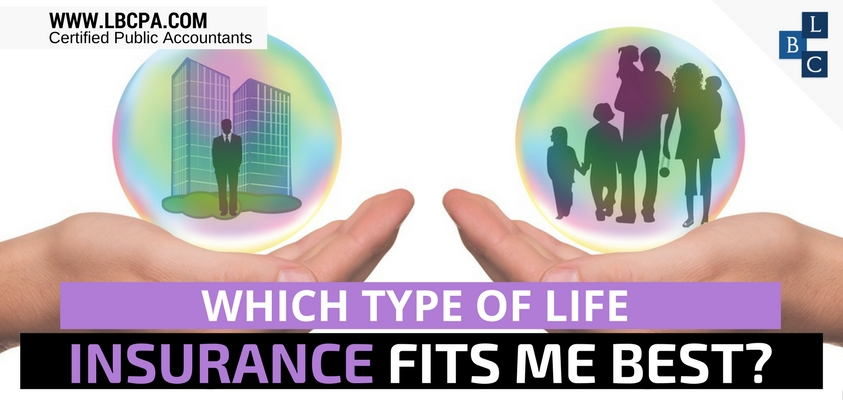LBCPA News 
Click here to go back
Which type of life insurance fits me best?

There are 7 major types of life insurance:
Term
Term insurance is best described as a policy for which you pay over a specific amount of time. In the event that you die within that period of time, your beneficiaries will receive a payoff.
People that are under the age of 40 will find this package less costly than a whole life policy. These policies generally do not build in cash value. However, they can convert over to a whole life policy without a mandatory physical.
Renewable
The policy which is bought most frequently is the Renewable Term Policy. This policy renews every year without you having to do anything, and there is no need to input any new information or take physicals. This can continue every year until you are in your 70s. The policy will increase incrementally every year, along with your age.
Re-entry
With this life insurance policy, you will have to periodically take physicals for the company to judge your rate of risk. If you don't, you will be subject to paying an extra premium.
Level
In the Level Term policies, you will be locked into a given rate of premium and you will stay there during a certain period (although not necessarily during the entire period of coverage).
Decreasing
A Decreasing policy is one which decreases in face value with time while the premium remains the same.
Whole Life
Whole Life is the most traditional policy given; this has a cash-value build up, sometimes offers dividends, and provides death benefits. This is not a policy that needs to be renewed constantly, as long as the payments are made, the policy will continue until death.
Universal Life
This policy is similar to the whole life policy. However, it offers more flexibility in many ways; you will have different options in cash value growth and the payment of premiums.
Variable Universal
Variable Universal policies will give you the option to choose the investments for your cash value. This is more risky, but simultaneously gives you more control over where this money is invested.
Variable Whole Life
This is the same as the previous in regards to control over the investments that are made. The difference between these two is the same as the difference between Whole Life and Variable.
If you have any questions regarding accounting, domestic taxation, international taxation, IRS representation, U.S. tax implications of Real Estate transactions or financial statements, please give us a call at 305-274-5811.
Source: Thomson Reuters






